MercoPress. South Atlantic News Agency
Tag: environment
-
Monday, September 17th 2018 - 08:44 UTC
UK/Argentina hold antimicrobial resistance scientific seminar in Buenos Aires
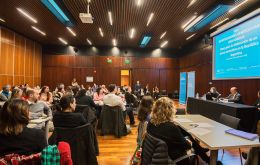
Scientists from different British universities, Argentine researchers and representatives of the organizing agencies took part this week in Buenos Aires in a seminar organized jointly by the Biotechnology and Biological Sciences Research Council (BBSRC) and the Natural Environment Research Council (NERC) from the UK, and the National Council for Scientific and Technical Research (CONICET) of Argentina.
-
Friday, April 13th 2018 - 08:44 UTC
New Zealand bans new offshore exploration and targets a clean energy future

Permits for offshore oil and gas exploration will no longer be issued by the New Zealand Government as part of its commitment to a clean energy future. The move will not affect existing permits for exploration or extraction, meaning the industry is likely to continue in the nation for several more decades.
-
Friday, January 5th 2018 - 10:15 UTC
Mysterious death of at least 88 grey dolphins on the coast of Rio do Janeiro state
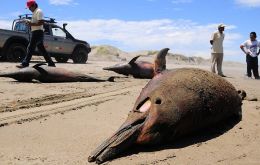
Environmentalists in Brazil say they are trying to figure out why more than 80 gray dolphins have died in less than a month on the coast of Rio de Janeiro state. A statement from the Gray Dolphin Institute says the dolphins died over past 17 days in the Bay of Sepetiba, a coastal district about 70 kilometers west of Rio de Janeiro. The institute is an NGO that monitors and strives to protect the dolphins.
-
Tuesday, December 26th 2017 - 09:23 UTC
Antipodean Albatross in breeding crisis; Falklands' Black-browed surveys show numbers are increasing
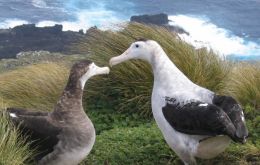
Antipodean Albatrosses court for years, mate for life and work together to raise their young – but human activity is causing a sex ratio imbalance that is destroying their lifelong romance. This year, they have been uplisted to Endangered on the IUCN Red List due to worrying population declines.
-
Monday, December 18th 2017 - 13:12 UTC
Chile bans bottom sea trawling in 98% of its EEZ to protect marine environment

Chile's Under secretariat of Fisheries and Aquaculture, SUBPESCA, and Oceana Chile jointly announced the freezing of the fishing footprint for the common hake and demersal crustacean fisheries. This means that 98% of Chile's exclusive economic zone, EEZ, will be protected from bottom trawling.
-
Thursday, November 3rd 2016 - 07:25 UTC
Uruguayan pulp mill passes pollution tests - Gualeguaychú not quite

An Argentine-Uruguayan commission took 50 samples of effluent from the pulp mill off Fray Bentos and as many in the Gualeguaychú mouth of the river in Entre Rios. Botnia passes test. The reports from the samples collected on the Argetine side recorded more polluting than those found off Fray Bentos. The plant's formal name is “Orion” but is widely known for its original Finnish name Botnia.
-
Wednesday, March 7th 2012 - 16:55 UTC
Invasive species threaten Antarctica; climate change and visitors boom blamed
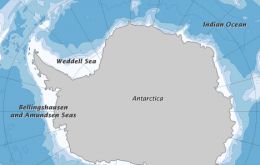
Antarctic tourists and scientists may be inadvertently seeding the icy continent with invasive species, a new study says. Foreign plants such as annual bluegrass are establishing themselves on Antarctica, whose status as the coldest and driest continent had long made it one of the most pristine environments on Earth.
-
Tuesday, December 13th 2011 - 17:56 UTC
With a global, comprehensive agreement still elusive, we need a new climate change 'road-map'

* By Lord Julian Hunt. The main aim of the UN climate summit at Durban, which concluded unsuccessfully on Friday/Saturday morning, was to produce an agreement about targets for emissions by developed countries, and longer term commitments from developing countries.
-
Wednesday, June 15th 2011 - 22:02 UTC
End of intense La Niña cycle anticipates return to average rainfall in Chile
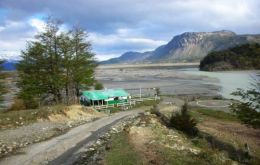
The most intense La Niña climate pattern since 1975 is coming to a close in Chile, after it cooled water temperatures off the Pacific coast of South America and left a troubling drought in its wake.
-
Wednesday, June 15th 2011 - 14:41 UTC
Aquaculture more efficient than livestock production, says WorldFish Centre
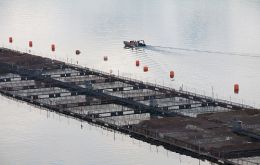
WorldFish Centre and Conservation International (CI) have revealed a comprehensive analysis exploring the environmental impact of the world's major aquaculture production systems and species and gives an unprecedented global assessment of trends and impacts. The results from the two-year study show that aquaculture is more efficient than other forms of animal protein production such as livestock.
